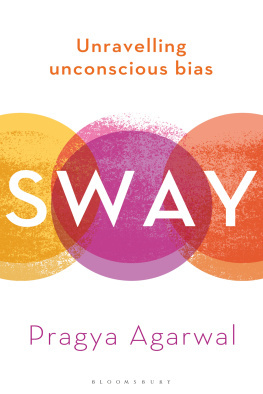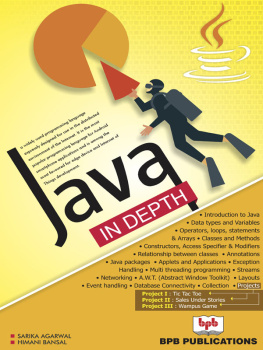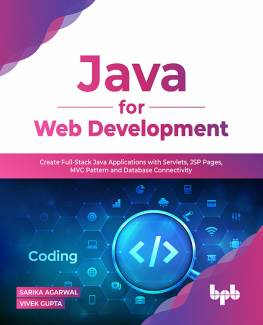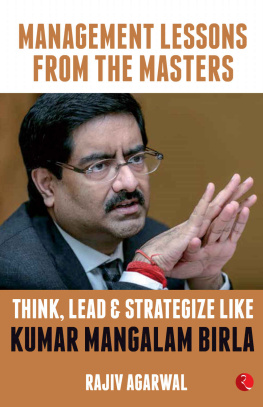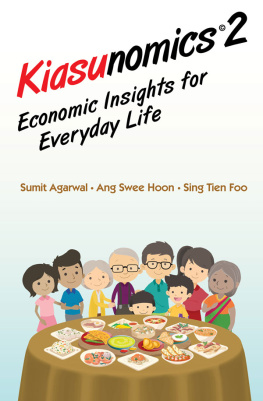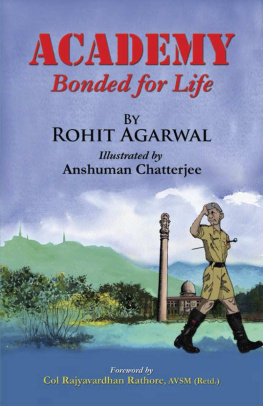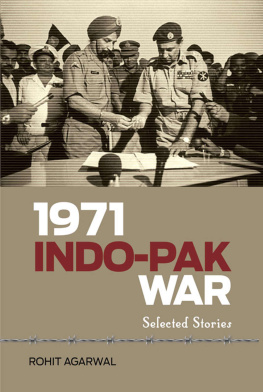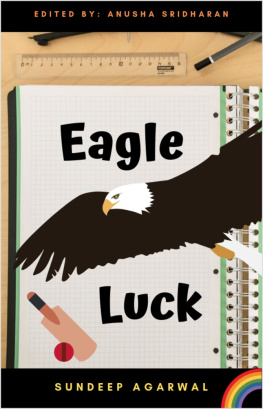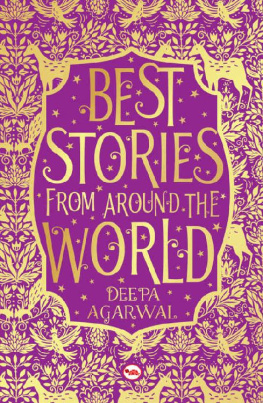Pragya Agarwal - (M)otherhood : on the choices of being a woman
Here you can read online Pragya Agarwal - (M)otherhood : on the choices of being a woman full text of the book (entire story) in english for free. Download pdf and epub, get meaning, cover and reviews about this ebook. year: 2021, genre: Home and family. Description of the work, (preface) as well as reviews are available. Best literature library LitArk.com created for fans of good reading and offers a wide selection of genres:
Romance novel
Science fiction
Adventure
Detective
Science
History
Home and family
Prose
Art
Politics
Computer
Non-fiction
Religion
Business
Children
Humor
Choose a favorite category and find really read worthwhile books. Enjoy immersion in the world of imagination, feel the emotions of the characters or learn something new for yourself, make an fascinating discovery.
- Book:(M)otherhood : on the choices of being a woman
- Author:
- Genre:
- Year:2021
- Rating:4 / 5
- Favourites:Add to favourites
- Your mark:
- 80
- 1
- 2
- 3
- 4
- 5
(M)otherhood : on the choices of being a woman: summary, description and annotation
We offer to read an annotation, description, summary or preface (depends on what the author of the book "(M)otherhood : on the choices of being a woman" wrote himself). If you haven't found the necessary information about the book — write in the comments, we will try to find it.
(M)otherhood : on the choices of being a woman — read online for free the complete book (whole text) full work
Below is the text of the book, divided by pages. System saving the place of the last page read, allows you to conveniently read the book "(M)otherhood : on the choices of being a woman" online for free, without having to search again every time where you left off. Put a bookmark, and you can go to the page where you finished reading at any time.
Font size:
Interval:
Bookmark:


ALSO BY PRAGYA AGARWAL
Sway: Unravelling Unconscious Bias
Wish We Knew What to Say: Talking With Children About Race
First published in Great Britain in 2021
by Canongate Books Ltd, 14 High Street, Edinburgh EH1 1TE
canongate.co.uk
This digital edition first published in 2021 by Canongate Books
Copyright Pragya Agarwal, 2021
The right of Pragya Agarwal to be identified as the
author of this work has been asserted by her in accordance
with the Copyright, Designs and Patents Act 1988
For permission credits see
British Library Cataloguing-in-Publication Data
A catalogue record for this book is available on
request from the British Library
ISBN 978 1 83885 316 7
eISBN 978 1 83885 319 8
My vagina no longer needs a monologue. It demands a dialogue.
Priya Malik
For Ma, and Papa
for loving me.
INTRODUCTION
I walk through my unbirth as in a tunnel
with bizarre perspectives.
Ten years before,
a hundred and fifty years before,
I walk, my steps thump,
a fantastic journey through epochs
in which there was no me.
How long is my minus life,
nonexistence so much resembles immortality.
Anna Swir, Woman Unborn
A S YOU READ THIS BOOK, you might wonder if it is a memoir, a manifesto, auto-fiction, or a form of political writing. It is all of these, and none. Does it really have to sit in a box? Who is to say what labels we put on our stories? And does it really matter in the end? All that matters as a writer is that I hold your trust in my hands as valuable to me as to you and you hold my stories in your heart as resonant to you as to me.
Even as I sit down to write what is in part at least the story of an aspect of my life, I wonder why anyone would write a memoir, especially when memories are not so infallible. As a very private person, I used to wonder what would compel someone to rake up their personal lives. It sounded so courageous and audacious to me, to put yourself out there for all to see and know, to bare the bones of your life and relationships to people who dont know you. At the same time, writing a memoir always seemed so self-indulgent, turning the light inwards, while there is so much to intrigue and fascinate outside of us.
It is also easy to assume that our story is mundane, not of value or interest to anyone. Why would it be? we wonder, because we live it every day. We muddle along in the most inconsequential manner sometimes. And sometimes lives only take meaning when we look at them from the outside. When we are inside them, they often just seem ordinary. Our struggles seem hackneyed, our wanderings so conservative and cautious, our triumphs so commonplace. Like many women, I used to think this too.
I used to wonder how someone can be a reliable narrator of their own life, when there is no one self, rather many pieces with jagged edges colliding and collapsing, overlapping and obfuscating, somehow making up a single person. One hopes that these pieces will come together miraculously into a coherent image, with their sharp edges fitting perfectly into a jigsaw. But so often there are pieces lost and missing, and these holes remind us of the selves we have misplaced along the way.
But stories matter. Individual stories project into universal experiences. And womens stories have long been hidden, ignored, sidelined. Stories about womens bodies are usually not heard, until and unless they are told from a mans perspective, a male gaze adoringly caressing a womans body or dissecting it gratuitously. There are few testimonies available from women as to why they make certain life choices, without pontificating on their virtue and goodness. Womens bodies are messy, bleeding, swelling, leaking, with all their protrusions and cyclical phases, transmogrifying like the shifting shapes of the moon. We so rarely hear stories of bodies that do not fit the norm; the way they grow and shrink, their desires and lusts. When we do hear these stories, we dont feel as alone in the tangle of our lives. The icy peripheries of shame and stigma that hold some words back seem to melt away, leaving vast open expanses for these words and stories to roam freely in.
This book is about the relationship women have with their bodies, sometimes fractured, sometimes fractious, but so often not whole or entirely satisfactory. Womens bodies can be seen as a threat. They become a battleground, desired and lusted upon, but also considered a monstrosity, defiled regularly, stigmatised and not their own terrain to navigate. While being placed on a pedestal and worshipped as goddesses, they are also being monitored, patrolled, controlled and abused. The body, the shell we inhabit all our lives, seems alien to us, and we spend so much time in this scrimmage between our own selves, pulling and pushing against our own bodies, moulding and shaping them to surrogate selves.
Paradox: a seemingly absurd or contradictory statement or proposition which when investigated may prove to be well founded or true.
I could have chosen anything. This was my only choice.
Ambivalence: the state of having mixed feelings or contradictory ideas about something or someone.
Did I always want to be a mother? Definitely, maybe.
How would I describe motherhood? Bittersweet.
I am a mother. I am a lot of other things, but I am a mother, too. And for some people that can become my whole identity. For a long time, I thought that was my whole identity. Only recently my eldest child, the one I refer to as M in this book, said to me, You are a very un-mumsy mum. I must have looked offended because she tried to reassure me that it was supposed to be a compliment. Isnt it an oxymoron? I asked.
Oxymoron: contradictory terms appearing in conjunction.
I did it of my own free will.
How can a will be free, and free of what?
We are frequently aware that we can choose from a number of alternatives. We like to imagine either that we have free will, or that at least we can have it whenever it is needed. Will implies the ability to overcome a certain resistance and reluctance in oneself, the ability to do what one knows is the proper course of action regardless of the fact that we may not feel like doing it in the present moment. And, in fact, this is precisely how will is acquired, by consistently following a course of action which one knows is right or proper or expedient, but which one does not at all wish to take. But what if we dont know what the best course of action is? What if we are told that there is one best course of action and we start believing it somewhat, even if we dont want to choose this path? What if we dont even know of the other choices? What then? Do we have free will then?
I have often wondered if, even in this era of unprecedented freedom and choice, women are really free to understand their own reproductive options or have the autonomy to shape these decisions. But what is autonomy? Autonomy or autonomous decision-making is an individuals right to make a decision that is right for them, in light of their own views and opinions, as long as no one else is harmed. While we might believe that we are perfectly autonomous and free to make our decisions at will, we are never free of our societal and cultural context. The primary criticism of the notion of womens autonomy when it comes to their own reproductive health is that we are never ever really free of the interference of the state and society.
Font size:
Interval:
Bookmark:
Similar books «(M)otherhood : on the choices of being a woman»
Look at similar books to (M)otherhood : on the choices of being a woman. We have selected literature similar in name and meaning in the hope of providing readers with more options to find new, interesting, not yet read works.
Discussion, reviews of the book (M)otherhood : on the choices of being a woman and just readers' own opinions. Leave your comments, write what you think about the work, its meaning or the main characters. Specify what exactly you liked and what you didn't like, and why you think so.


